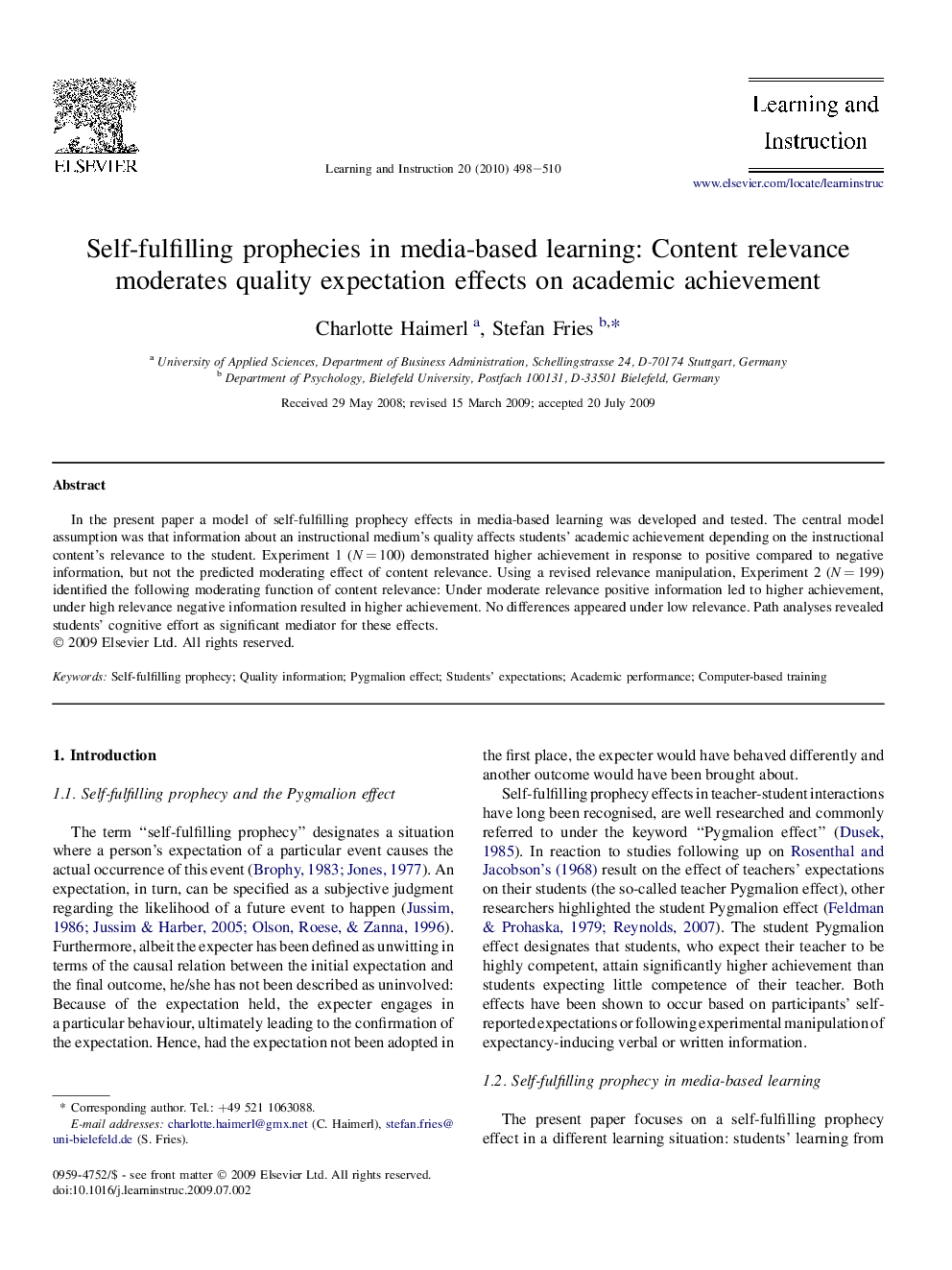| Article ID | Journal | Published Year | Pages | File Type |
|---|---|---|---|---|
| 365826 | Learning and Instruction | 2010 | 13 Pages |
In the present paper a model of self-fulfilling prophecy effects in media-based learning was developed and tested. The central model assumption was that information about an instructional medium's quality affects students' academic achievement depending on the instructional content's relevance to the student. Experiment 1 (N = 100) demonstrated higher achievement in response to positive compared to negative information, but not the predicted moderating effect of content relevance. Using a revised relevance manipulation, Experiment 2 (N = 199) identified the following moderating function of content relevance: Under moderate relevance positive information led to higher achievement, under high relevance negative information resulted in higher achievement. No differences appeared under low relevance. Path analyses revealed students' cognitive effort as significant mediator for these effects.
